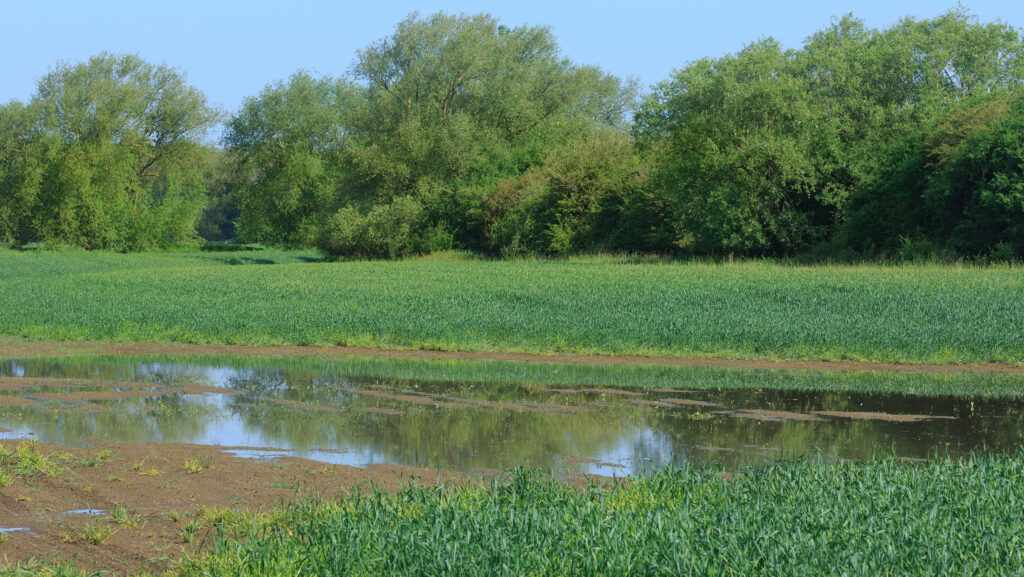Climate change increasing hot and wet days, says Met Office
 © Tim Scrivener
© Tim Scrivener The UK is experiencing hotter and wetter conditions more quickly, with climate change significantly driving this trend, according to new Met Office analysis.
The forecaster’s annual State of Climate Report finds 2023 continued the trend of recent decades of being a warmer and wetter year.
In a year of weather extremes, 2023 was the second warmest year and seventh wettest in the UK, with the wettest three-day period on record, highlighting the increasing severity of climate impacts.
See also: How to build climate resilience into farm business plans
Farmers faced significant hurdles due to an unprecedentedly active start to the storm season, with extreme wet weather last winter preventing access to fields and leading to crop failures. This could result in a reduction of up to 20% in this year’s harvest.
Adverse weather conditions are also threatening food security, highlighting the need for increased support for farmers to adapt and build resilience against floods, droughts, and extreme heat.
Notable weather events in 2023 included the warmest June on record, and 30C recorded on seven consecutive days in September.
Storm Babet in October brought unprecedented flooding to the North, the Midlands and Scotland, causing significant damage to farmland, crops and infrastructure.
‘Bad year’
Malcolm Parr, an arable farmer based near Gainsborough, in Lincolnshire, struggled to drill winter cereals last autumn due to exceptionally wet weather. Most of the crops he did manage to drill, he lost.
“It has been a bad year, but we have had years like this before,” he said.
“There’s no doubt we’re going to have to do more clearing out of ditches, some piping and drainage in case we get more of the same this year.”
But Mr Parr is sceptical about the impact of man-made climate change on the weather. He believes more work should be done to establish whether “cloud seeding” experiments in other countries to manipulate rainfall have any effect on the UK.
“We’re getting blue skies and next thing the clouds are as black as soot and it pours down. It’s wreaking havoc with harvest plans,” he said.
Climate adaptation
Commenting on the analysis, Tom Lancaster, land food and farming analyst at the Energy and Climate Intelligence Unit (ECIU), said: “Farmers will need more support now to adapt, and build more resilience to floods, drought and extreme heat, and Defra’s new green farming schemes are a key part of this.
“But adapting to these extremes is not a long-term plan. The only way we can guarantee our food security against the impacts revealed in this report is to get to net-zero emissions to stop climate change worsening.”
Scottish agriculture warned of doubling of drought events by 2050
The Scottish farming industry is being encouraged to do more to adapt to climate change after researchers found that the number of water scarcity events in Scotland could double by 2050.
The research, led by The James Hutton Institute, focused on how climate change is impacting water availability for the farming and whisky sectors, which could be left increasingly high and dry.
In some catchments, it found that surface water scarcity events, where river levels drop to significantly low levels, could increase in frequency from one every five years to every other year – or even more often, potentially meaning more restrictions on using these waters.
The study was commissioned by Scotland’s Centre of Expertise for Waters, which is based at the Hutton, with partners at Scotland’s Rural College, the University of Aberdeen and the British Geological Survey.
